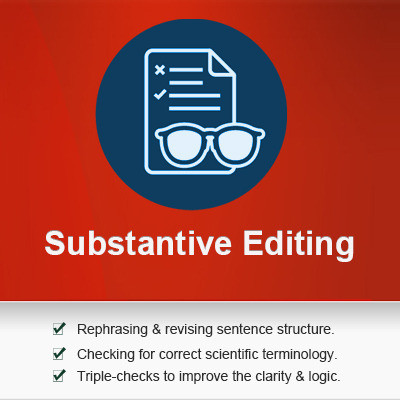
Substantive Editing vs. Subject-matter Editing
This site and article by V. Panikar provide a nice and brief overview of what constitutes “substantive editing,” which normally is the most extensive editing that professional editors do. Panikar eventually announces her services, but before doing so, she provides information valuable to anyone considering working with an editor. I imagine, however, that things get complicated when the author seeks or could use help with the intellectual substance of the manuscript and the editor happens to be, for example, an active social scientist, or psychologist with a background in research and publication. In this scenario, the author and editor should arrive at some clarity on the boundaries regarding the editing services to be provided. The editor (e.g., who is also a trained social scientist) may see that the theoretical framework is weak, or that the presentation and analysis of data is insufficient for the claims made. So, does the editor add critical commentary on the subject matter (which is “on the clock”), or just briefly mention the concern and then continue on with the conventual aspects of substantive editing? I don’t have answer to this question, and the materials I’ve read so far don’t really address it. RDSS. [Posted March 29, 2019 ]
What is substantive editing?
By Vimala Panikar, M.Com, Mumbai University
https://www.editage.com/all-about-publication/english-editing/what-is-substantive-editing.html
Editing is broadly classified by level of service into proofreading, copyediting, and substantive editing. Of these, the last is the most comprehensive. So, what exactly do substantive editors do? All that copyeditors and proofreaders do and much more! They cast a critical eye over all components of your document and see whether these link together as a coherent whole. They will
· Evaluate your document in its entirety, as well as its sections as standalone components
· Check that it communicates clearly with your target audience
· Flag missing structural elements or inadequate discussion
· Highlight problems with logic and style
· Ensure terminology accuracy and consistency
· Rephrase sentences to ensure conciseness, clarity, smooth transition, and within-paragraph flow
· Relocate sentences or chunks of textto improve your document’s overall flow
· Check the formatting
Thus, substantive editing involves a complete overhaul of your document—from the title to Appendix. Are you writing a journal article? Academic papers must usually follow a certain format and have a formal tone. Do you aim to get it published in a particular journal? You would, of course, be aware that most journals receive and desk-reject many more papers than they can ever publish—substantive editing can help you get past that goalpost more easily and at the review stage, help you address reviewers’ concerns more effectively. Even if you have not yet zeroed in on a journal, it’s best to keep in mind that journals usually have some common benchmarks related to language and presentation. This is why substantive editing can be immensely helpful: A substantive editor is your collaborator, the language and subject matter expert who will polish your paper till it meets the publication standards of international journals.
Or are you writing a thesis or book? You will need to keep track of the narrative thread and also ensure each chapter flows seamlessly into the next—a geometrical increase in the complexities and challenges, thanks to the volume of content! This is when brainstorming with a substantive editor will be of immense help. You can opt for substantive editing at any point of the writing process, but it might be wise to get the editor’s view once your rough draft is ready. This way, you can easily incorporate editorial suggestions at the outset and develop the manuscript more effortlessly.
In summary, substantive editors will point out all possible ways and means to improve a document so that it is publication-ready—and this, while retaining the author’s “voice” to the extent possible.
Editage’s Premium Editing Service:
We offer our clients
· Intensive publication-focused editing by a domain expert
· Editing support till your manuscript is ready for publication
· A manuscript assessment report from your editor
· A professionally written cover letter for journal submission